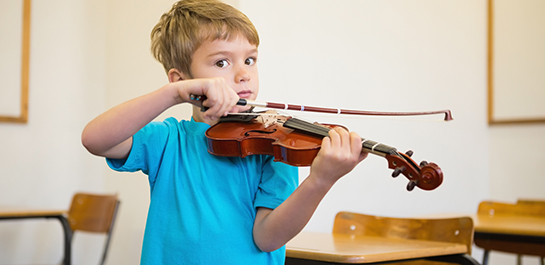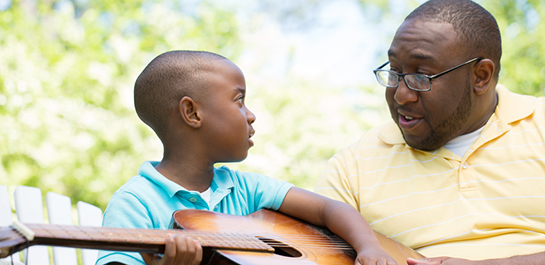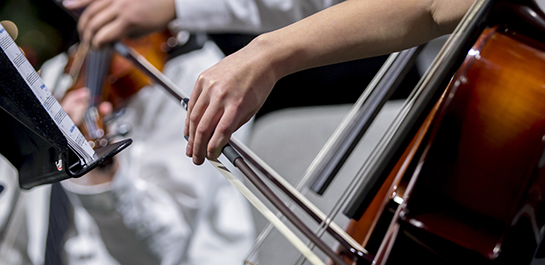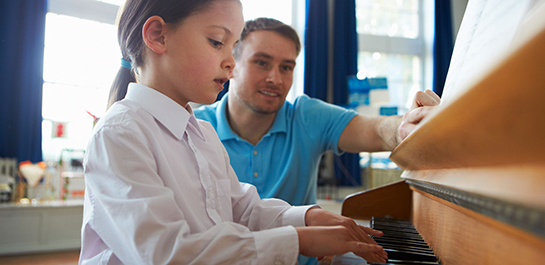We often receive questions from parents about what their roles are in helping their children learn music and instruments. We asked some of our instructors about their experiences working with students and parents, and they offered these five ways that parents can take part in their child’s musical development.

1. Commit to Daily Practices
As cliché as it sounds, musical success is due to consistent, quality effort, and not just raw talents. Playing instruments involves daily practices. Helping your child set and keep a daily practice routine, and then to be engaged in that practice routine, is the best thing the parents can do. “My students who have parents involved in their musical journey tend to come to lessons better prepared and move through repertoire at a faster rate,” said Ms. Joan Burdette, instructor for Cello Beginnings, Cello Adventures, and Music Discoveries. “I encourage parents to set aside 20 minutes a day to practice with their child, bonding with songs, games, and activities.”

2. Be a Cheerleader
Children first learn to eat, sleep, read, and do just about everything through observing their parents. Music is no different. There is a general misconception that if a child shows a lack of interest toward practicing that the child wants to quit. Although some children are self-motivated, most children need encouragement and support from parents, especially at the beginning.
“With good parent and teacher communication and structure in their practice routine,” said Ms. Michelle Richardson, teaching artist for Piano Beginnings. “Children can overcome the difficult phases of learning and grow their intrinsic motivation with time.” With the support and encouragement from the parents, student’s first goal is to establish good practice habits and a positive mindset. Parents can help achieve that goal through listening to a variety of musical styles, going to concerts, or making music a central part of family life. “Let music becomes a vibrant part of life rather than a chore,” said Ms. Richardson. “and will grow with them forever!”

3. Help Your Child Complete Practice Assignments
After each class, music instructors assign specific tasks for playing and music theory for students based on their progress. By following the instructions and guidelines provided by their instructors, students will make the fastest progress and be prepared for their next lesson. “This is important for parents to let their children review their learning,” said Dr. Kelly Nam, teaching artist for Piano Beginnings. “Assignments will reinforce their learning outcome and build up to the highest level of music study.”

4. Show Your Interest in Their Music
Parents who are involved with their child’s musical development have a special bond with their child. Attending classes with a young child or asking your older child how they are doing in their lessons or rehearsals shows that you are committed to being on the musical journey with them. “It gives the parent a chance to see their child in a different light and be on hand to see their growth,” said Ms. Caitlin Renner, teaching artist for Violin Beginnings. “And the parent often ends up learning something as well!”

5. Don’t Skip Class
Consistent attendance ensures that the students have a cohesive learning experience and steady musical progress. Our instructors build each class upon a previous lesson session, and missing a class results in a disconnection for students with class materials. “If the students come to class regularly,” said Mr. Glen McCarthy, teaching artist for Guitar Beginnings. “They wouldn’t do a lot of preparation before the class. We play and learn a lot in the class. If they miss it, they are missing a big gap of learning that will spend a week of their time to catch up.”
We hope these five tips are helpful for our parents, no matter where your child is on their musical journey! If you want to learn more, we encourage you to speak with your child’s instructor for specific ideas on being more involved with your child’s learning process.

